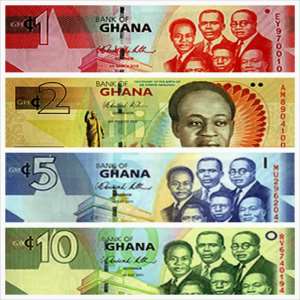
Monetary Policy Analysis: The Ghana Currency Report for Month of July
July came around on the back of a fiscally and monetarily challenged month of June. The cedi continued to struggle and the USD, trading as 4.36 in the first week. But then news suddenly news of the impending IMF Review meeting, and the fact the it was likely that the government of Ghana was going to pass the review with excellent grades. And subsequent to this new positive development, it was announced that four key events were going to happened and that they were:
- Second Tranche of the IMF Balance of Payment Support.
- $1.8Billion COCOBOD Syndicated Loan.
- Ghana $1.5b Eurobond.
- $150Million World Bank Macro-Economic Stability Support.
- $20M weekly injection into the interbank.
The news of these upcoming positive economic events gave the Cedi its biggest appreciation surge in a little over six months (01/15/15 to 07/22/15). The Cedi's appreciation against the dollar was as high as 3.22GHS to $1 on July 20th.
The Cedi's strong rebound weakened in the final week of July on dollar demand by firms. The Cedi exchanged at 3.700 per dollar at 1054 GMT on Thursday, from 3.3500 last weeks and sharply down from 3.25 on July 20, when it printed its highest gain since January. The local currency on average depreciated by about 29 percent since its brief appreciation against the foreign currencies from July 9.
The Business Guide conducted a quick local survey in the final week of July and here are the Interbank and Forex rates that it discovered from commercial banks around Nima and the Ring Road area:
- Access Bank's – GHC3.74 to $1 and GHC5.95 for £1.
- GT Bank located close to the Ridge Roundabout, GHC3.73 $1.
- Nima ADB GHC3.675 $1 and GHC5.60 for £1.
- The Bank of Ghana's website quoted GHC3.42 for a dollar and GHC5.35 for a pound.
According to some analyst reports, the renewed pressure on the Cedi was fueled largely by speculative activities which have led to panic-buying because the central bank had not been very active in the market last week in terms of its weekly $20 million injection. It seems that there is a lot of confusion about the process surrounding the liquidity injections by the central bank and it might thus be fueling some speculative behavior.
About the author:
Anang Tawiah is a New York City based Business Economics and Technology Analyst. You can read more of his analysis or reach him for professional consultations at:
Email: [email protected]
Business economics blog: anangtawiah.wordpress.com
Business technology blog: http://www.labaddi.com/blog




 Tuesday’s downpour destroys ceiling of Circuit Court '8' in Accra
Tuesday’s downpour destroys ceiling of Circuit Court '8' in Accra
 SOEs shouldn't compromise on ethical standards, accountability – Akufo-Addo
SOEs shouldn't compromise on ethical standards, accountability – Akufo-Addo
 Father of 2-year-old boy attacked by dog appeals for financial support
Father of 2-year-old boy attacked by dog appeals for financial support
 Jubilee House National Security Operative allegedly swindles businessman over sa...
Jubilee House National Security Operative allegedly swindles businessman over sa...
 Nobody can order dumsor timetable except Energy Minister – Osafo-Maafo
Nobody can order dumsor timetable except Energy Minister – Osafo-Maafo
 Mahama wishes National Chief Imam as he clock 105 years today
Mahama wishes National Chief Imam as he clock 105 years today
 J.B.Danquah Adu’s murder trial: Case adjourned to April 29
J.B.Danquah Adu’s murder trial: Case adjourned to April 29
 High Court issues arrest warrant for former MASLOC Boss
High Court issues arrest warrant for former MASLOC Boss
 Align academic curriculum with industry needs — Stanbic Bank Ghana CEO advocates
Align academic curriculum with industry needs — Stanbic Bank Ghana CEO advocates
 Election 2024: We'll declare the results and let Ghanaians know we've won - Manh...
Election 2024: We'll declare the results and let Ghanaians know we've won - Manh...
